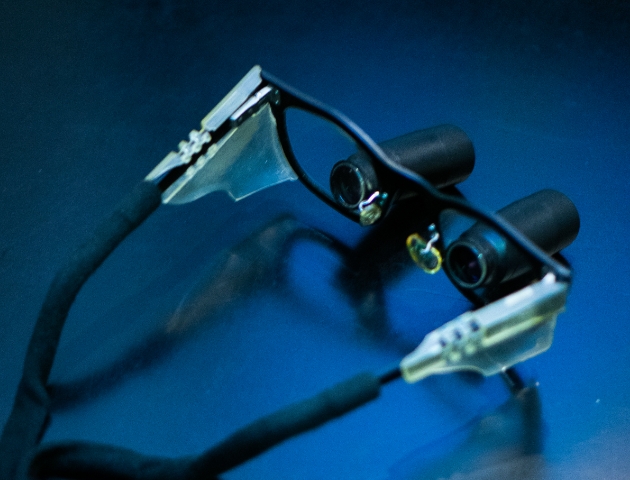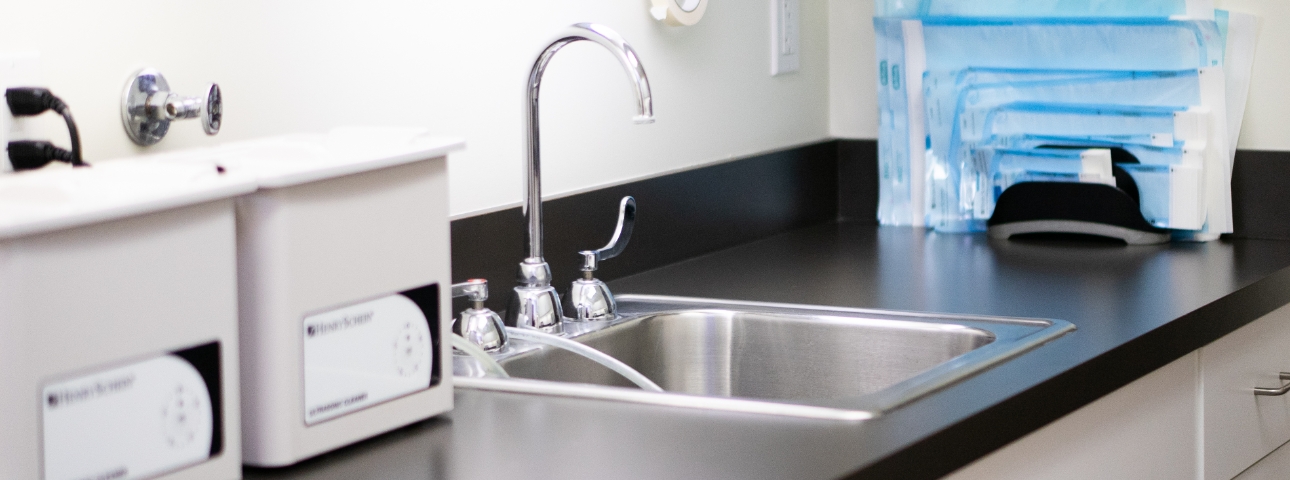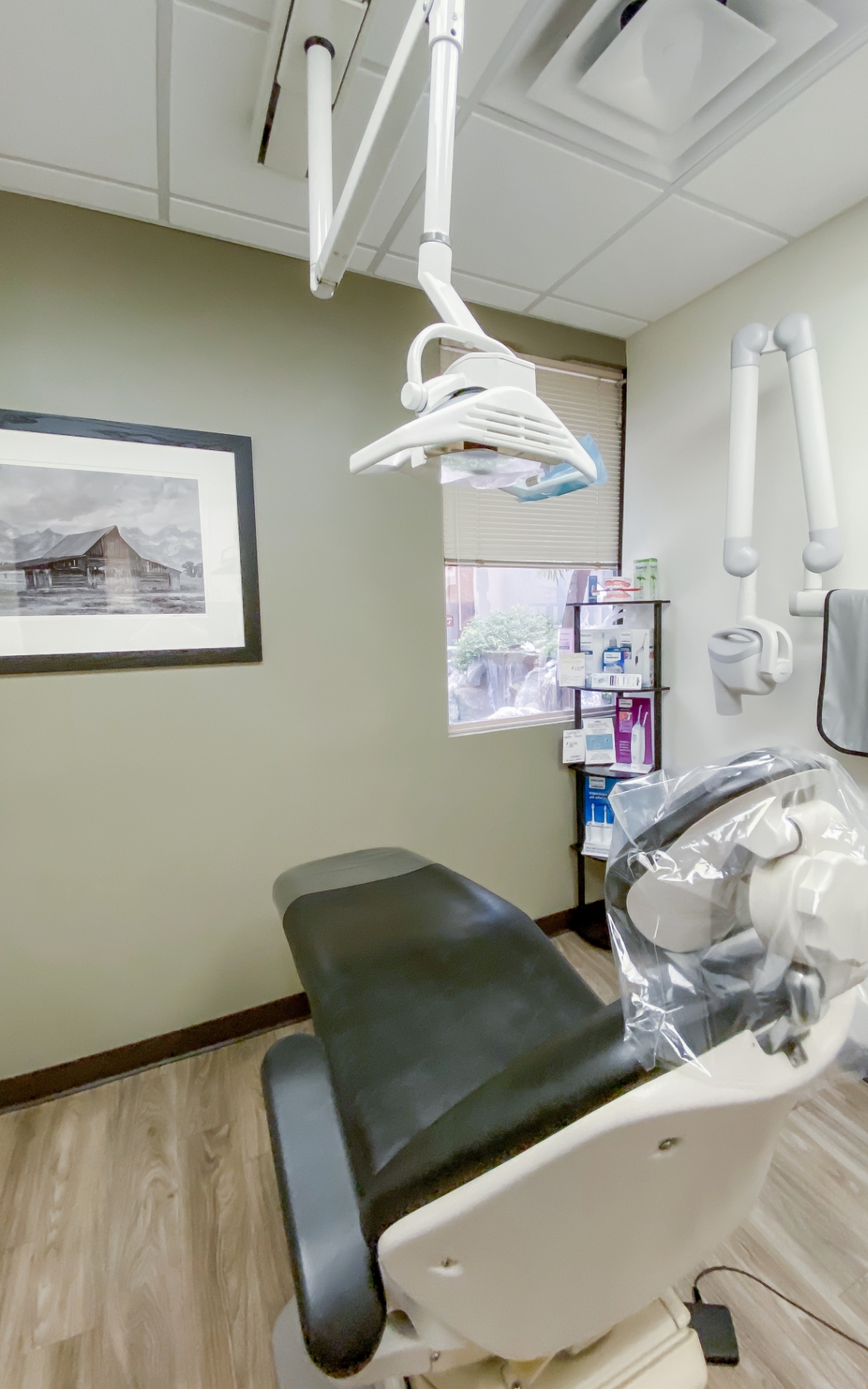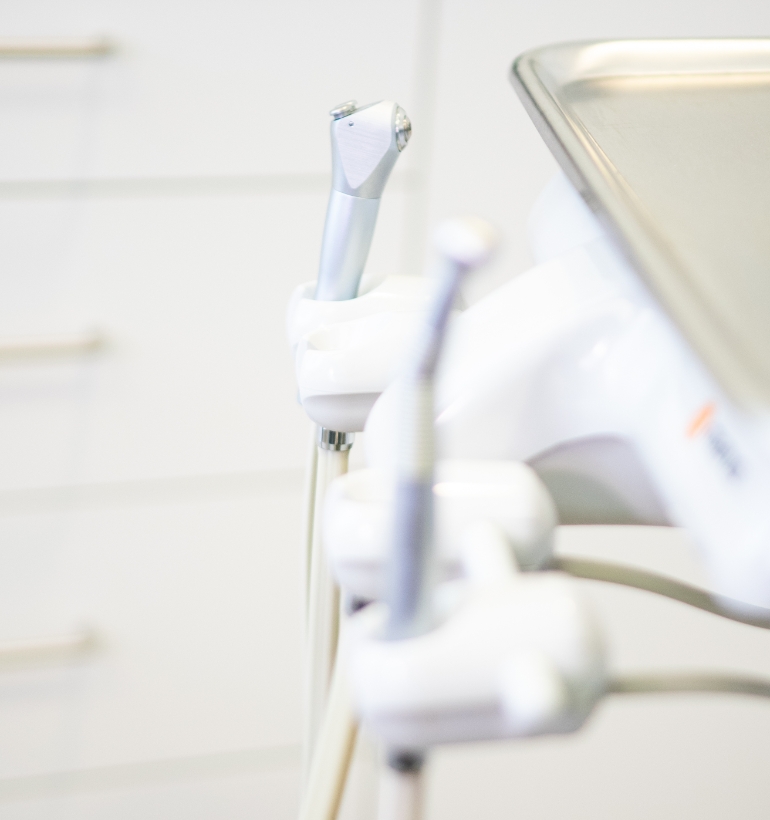The term “periodontal” means “around the tooth.” Therefore, periodontal disease affects the gums and bone supporting the teeth. If left untreated, periodontal disease can inevitably lead to tooth loss.
Periodontal (gum) disease is usually detected by your general dentist or dental hygienist when he/she is conducting a periodontal exam. During this exam, which should be done at every dental check-up, is when he/she uses a periodontal probe to measure the pocket space between the gumline and the teeth. A normal depth is about 3 millimeters or less, with no bleeding. The probe is used to determine if the pocket is deeper than 3 millimeters – the deeper the pocket, the more likely you have periodontal disease. Pocket depth, bleeding, gum inflammation and loosening of the teeth are all factors to consider when diagnosing a patient with periodontal disease.
Causes & Risk Factors
The infection starts when the gums become inflamed due to bacteria in plaque, a sticky, colorless film that forms on your teeth. While this is often the main cause of periodontal disease, other factors can also be attributed to affecting the health of the gums and bone, including:
- Smoking or Tobacco Use
- Stress
- Genetics
- Pregnancy
- Medications
- Diabetes
- Poor Nutrition
Types of Periodontal Disease
Periodontal disease comes in many forms, including:
Gingivitis
Gingivitis is perhaps the mildest form of gum disease. It is considered the first stage. While the gums become red, swollen and bleed easily, there is very little to no discomfort associated at this stage of the disease. Through a good oral hygiene regimen and treatment from your dentist or periodontist, the results of gingivitis can be reversed.
Periodontitis
Periodontitis is another form of periodontal disease and can be aggressive or chronic. Periodontitis displays the loss of gum attachment to the teeth and rapid bone destruction. Periodontal pockets deepen and fill with bacteria and puss. The gums are inflamed, painful and bleed very easily.
Advanced Periodontitis
Advanced chronic periodontitis is one of the most common forms of periodontal disease and is frequently seen in adults. The stages progress slowly and can be recognized by gum recession, deep pocket formation, bone loss and teeth loosening. If the teeth become too loose, they will fall out.





